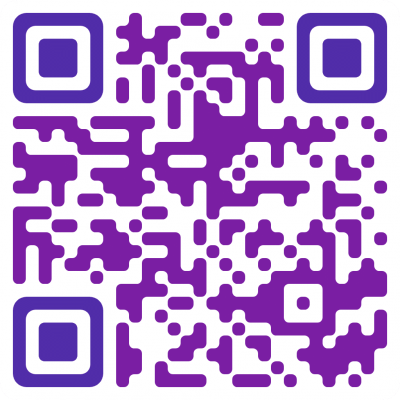Skip ahead to:
An Overview of Integrative Nutrition
Who Integrative Nutrition Nourishes
Integrative Nutrition is a treasure trove for those yearning to embrace a healthier lifestyle. It speaks to the heart of anyone who has felt overwhelmed by conflicting dietary advice, offering clarity and simplicity. Whether you’re a parent seeking wholesome habits for your family, a busy professional trying to balance health with a hectic schedule, or someone who’s struggled with weight and wellness for years, this book is your companion on a journey to vitality.Common Health Struggles Addressed
In the pages of Integrative Nutrition, Joshua Rosenthal acknowledges the myriad of health conditions plaguing our society. From obesity to diabetes, heart disease to fatigue, the book recognizes these challenges not as life sentences but as calls to action. It’s for those who have suffered enough and are ready to reclaim their health.Achieving Vibrant Health with Integrative Nutrition
Integrative Nutrition offers a vision of health that goes beyond the quick fixes and fad diets. It’s a promise of lasting transformation through holistic well-being. Readers are not just seeking temporary solutions; they crave a lifelong romance with vitality. This book is the first step on a path to a rejuvenated body, mind, and spirit.Core Themes of Holistic Health
At its core, Integrative Nutrition is about more than just food on a plate. It’s about the nourishment of relationships, careers, spirituality, and physical activity. The book weaves these themes into a tapestry of wellness, inviting readers to look at the big picture of health. It’s a holistic approach that respects the uniqueness of each individual.Key Takeaways for Lasting Health
Joshua Rosenthal emphasizes that health is a personal journey, and Integrative Nutrition is the map. The most crucial takeaways are listening to your body, integrating a variety of foods, and balancing all areas of life. It’s about making informed, conscious choices and embracing the joy of eating and living well. This book is your guide to a radiant life, one nourishing choice at a time.Top 15 Habits in Integrative Nutrition
Embarking on a journey towards better health is not just about what you eat, but how you live. The habits recommended in Integrative Nutrition are designed to address the whole person, recognizing that every aspect of our lives contributes to our overall well-being. These practices are keys to unlocking a healthier, more vibrant self, and they are deeply interconnected with the physical and emotional challenges that many face.- Whole Foods Diet
Prioritizing whole, unprocessed foods enriches the body with essential nutrients, supports weight management, and reduces the risk of chronic diseases such as diabetes and heart disease. - Drinking More Water
Staying well-hydrated aids in digestion, helps flush out toxins, and can improve energy levels and cognitive function, combating fatigue and aiding in weight loss. - Regular Physical Activity
Incorporating movement into daily life boosts cardiovascular health, strengthens the body, and can improve mood and mental health, addressing issues like anxiety and depression. - Adequate Sleep
Ensuring sufficient restorative sleep is crucial for maintaining hormonal balance, supporting immune function, and managing stress, which can all contribute to obesity and heart disease. - Mindful Eating
Eating with mindfulness encourages a healthier relationship with food, can aid in digestion, and helps prevent overeating, which is essential for tackling obesity and fostering a positive body image. - Positive Relationships
Cultivating supportive and positive relationships can lead to better stress management and emotional well-being, which are often overlooked aspects of health. - Professional Fulfillment
Engaging in work that is fulfilling and aligns with personal values can reduce stress and improve mental health, impacting overall life satisfaction. - Spiritual Practice
Whether through meditation, prayer, or reflection, spiritual practice contributes to a sense of purpose and can help in managing stress and emotional health. - Time in Nature
Spending time outdoors can reduce stress, enhance mood, and promote a sense of well-being, which is beneficial for mental health and can help with conditions like depression. - Limiting Processed Foods
Reducing intake of processed foods can decrease exposure to harmful additives and high levels of sugar and salt, which are linked to various health issues including heart disease and diabetes. - Cooking at Home
Preparing meals at home allows for control over ingredients and portion sizes, which is important for managing weight and preventing chronic diseases. - Regular Health Check-ups
Staying on top of health with regular check-ups can lead to early detection and management of health conditions like high blood pressure and cholesterol levels. - Stress Reduction Techniques
Utilizing techniques such as deep breathing, yoga, or tai chi can lower stress levels, which is crucial for preventing stress-related conditions like hypertension. - Continuous Learning
Keeping the mind active through learning and curiosity can improve cognitive function and may help delay the onset of age-related cognitive decline. - Reducing Toxin Exposure
Being mindful of environmental toxins in food, products, and surroundings can reduce the risk of various health issues, including allergies and cancers.
Run a Nutrition Challenge on MasterHealth
High Protein, Eat Veggies, Time Restricted Eating, and more…
Learn More
Integrative Nutrition Food List: 6 Most Important Foods
As an AI language model, I don’t have direct access to the contents of books, including Integrative Nutrition by Joshua Rosenthal. However, I can provide general information on the types of foods that are commonly recommended in integrative nutrition based on public knowledge up to my last update in September 2021. Please note that the following list is not directly sourced from Rosenthal’s book but is based on principles commonly found in integrative nutrition.- Leafy Greens
Consuming a variety of leafy greens like spinach, kale, and Swiss chard is crucial for providing the body with vitamins, minerals, and fiber. These nutrient-dense vegetables support a healthy immune system and can help reduce the risk of chronic diseases such as heart disease and diabetes. - Whole Grains
Whole grains like quinoa, brown rice, and oats are important for maintaining healthy digestion due to their high fiber content. They also provide sustained energy and can help in managing blood sugar levels, making them beneficial for weight management and diabetes prevention. - Berries
Berries such as blueberries, strawberries, and raspberries are rich in antioxidants and phytonutrients, which can help protect the body from oxidative stress and reduce inflammation. This can contribute to the prevention of cancer and other chronic conditions. - Nuts and Seeds
Nuts and seeds, including almonds, chia seeds, and flaxseeds, offer healthy fats, protein, and fiber. They are associated with heart health due to their ability to improve cholesterol levels and provide essential nutrients like omega-3 fatty acids. - Fatty Fish
Fatty fish like salmon, mackerel, and sardines are high in omega-3 fatty acids, which are known for their anti-inflammatory properties. Regular consumption can support cardiovascular health and cognitive function. - Legumes
Legumes such as lentils, chickpeas, and black beans are excellent sources of plant-based protein and fiber. They can aid in blood sugar regulation, support gut health, and are linked to a lower risk of several chronic diseases.
Is Integrative Nutrition a Diet?
Integrative Nutrition, founded by Joshua Rosenthal, often gets mistaken for a diet plan. However, it’s a holistic approach that goes beyond the simple concept of dieting. Integrative Nutrition focuses on nourishing not just the body, but also the soul and mind, emphasizing the importance of relationships, exercise, career, and spirituality on overall health.It’s about making sustainable lifestyle changes rather than following a restrictive diet. Joshua Rosenthal encourages students and readers to listen to their bodies and make food choices that enhance their well-being.
Can Integrative Nutrition Replace Medical Advice?
There’s a common misconception that the principles taught by Joshua Rosenthal at Integrative Nutrition can substitute for professional medical advice. While Integrative Nutrition provides valuable insights into wellness and health, it’s essential to understand that it complements medical advice rather than replaces it.Integrative Nutrition Health Coaches support clients in making positive lifestyle changes and can work alongside healthcare providers to assist individuals in achieving their health goals.
Is Joshua Rosenthal’s Approach Scientific?
Some people question the scientific backing of Joshua Rosenthal’s teachings at Integrative Nutrition. It’s important to recognize that Integrative Nutrition combines evidence-based dietary theories with holistic health concepts. While not all aspects may be rooted in conventional science, the program encourages critical thinking and personal experimentation to find what truly works for the individual’s unique body and lifestyle.Are All Foods Treated Equally in Integrative Nutrition?
A common misunderstanding about Integrative Nutrition is that all foods are considered equal and that there are no dietary restrictions. Joshua Rosenthal introduces the concept of bio-individuality, which means that each person has unique food and lifestyle needs.While Integrative Nutrition promotes a varied and balanced diet, it also recognizes that certain foods may be more beneficial or detrimental depending on the individual.
Is Integrative Nutrition Only for Aspiring Health Coaches?
Many believe that Integrative Nutrition is solely for those looking to become health coaches. While the school does train individuals to become certified health coaches, Joshua Rosenthal’s philosophy is that everyone can benefit from Integrative Nutrition’s principles.The program aims to empower people to make informed decisions about their health and to inspire others to do the same, whether or not they choose to pursue a career in health coaching.
Books Similar to Integrative Nutrition
Eat, Drink, and Be Healthy by Walter C. Willett
Eat, Drink, and Be Healthy, written by Harvard professor Walter C. Willett, offers a scientific approach to eating for health. The book provides practical guidelines based on the latest research in nutrition. Similar to Integrative Nutrition, it emphasizes the importance of whole foods and the role of diet in preventing disease.However, it differs in its approach by focusing more on specific nutrients and their health effects, rather than the holistic approach to lifestyle and wellness that Joshua Rosenthal advocates.
The Blue Zones Solution by Dan Buettner
The Blue Zones Solution by Dan Buettner explores the dietary habits and lifestyles of the world’s longest-lived people. Like Integrative Nutrition, it looks at the big picture of health, including the impact of community and sense of purpose on well-being.The main difference is that The Blue Zones Solution is more of a cultural exploration, providing insights into the lives of people in regions known as Blue Zones, whereas Integrative Nutrition is a guide that combines personal health coaching with nutrition education.
Food Rules: An Eater’s Manual by Michael Pollan
Food Rules: An Eater’s Manual by Michael Pollan is a concise, easy-to-read collection of principles for eating well. Pollan’s approach is similar to Rosenthal’s in its simplicity and emphasis on whole, unprocessed foods.The difference lies in the scope; Food Rules is a quick reference for healthy eating, while Integrative Nutrition offers a more comprehensive look at health and wellness, including aspects like career and spirituality.
The Blood Sugar Solution by Mark Hyman
The Blood Sugar Solution by Dr. Mark Hyman addresses the issue of diabetes and obesity through dietary and lifestyle changes. Similar to Integrative Nutrition, it advocates for a whole-foods approach and recognizes the connection between food and chronic disease.However, The Blood Sugar Solution is more focused on balancing blood sugar and its role in health, whereas Integrative Nutrition covers a broader range of topics related to overall wellness.
Whole: Rethinking the Science of Nutrition by T. Colin Campbell
Whole: Rethinking the Science of Nutrition by T. Colin Campbell delves into the science behind nutrition and the benefits of a plant-based diet. It shares similarities with Integrative Nutrition in its holistic view of health and the emphasis on natural foods.The difference is that Whole is more focused on the critique of nutritional science and the promotion of a whole-food, plant-based diet, while Integrative Nutrition provides a broader perspective on lifestyle choices beyond just diet.
About this book summary
This summary was prepared by our team at MasterHealth to the best of our knowledge. Please reach out to our team for any corrections to the content should you feel any of the information is not accurate.We work with many health & fitness professionals, who actively run group and community based programs on MasterHealth. Ask how we can help you build and amplify your business.
For health seekers, please ensure to ask your personal health care providers before making changes to your health habits and supplements; use of the information provided on this page and website does not constitute medical advice or similar professional health service advice.














